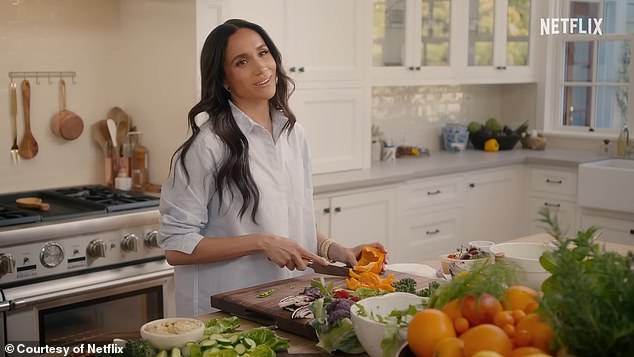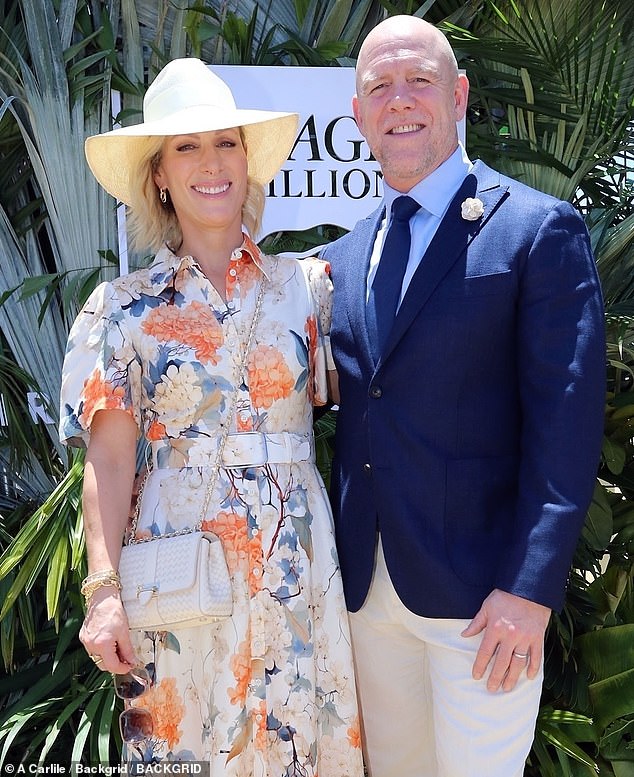DR. MAX PEMBERTON: Are you concerned about your child’s mental health? I’m afraid there’s only one thing you can do…
Growing up these days can be incredibly tough, no matter how resilient children and teens are.
The reality is that the pandemic, the cost of living crisis, social media and peer pressure have led to a wave of young people suffering from a range of mental health problems, and the figures released last week make for deeply worrying reading.
NHS data analyzed by the charity YoungMinds shows that England has experienced a 10 per cent increase in the number of children needing specialist treatment for serious mental health problems.
The shocking data shows a worrying increase in the number of urgent, very urgent and urgent referrals for under-18s – to 34,793 between April and October 2024.
For all the talk about the importance of mental health awareness, children and young people struggling with serious problems, from anxiety to suicidal thoughts or eating disorders, are being shamefully betrayed by the Child and Adolescent Mental Health Service (CAMHS).
These services are at an absolute breaking point and children with mental health problems often wait years to be assessed by NHS services – if the referral is accepted at all.
The latest available figures (2022-2023) show that almost 40,000 children had to wait at least two years to access support.
More than a third of all referred children ultimately had their cases closed before they could access treatment.
For all the talk about the importance of mental health awareness, young people struggling with serious problems are being shamefully betrayed by the child and adolescent mental health system.
I suspect this is because a substantial number had to wait so long that they were no longer considered children and had to be referred to adult services. Essentially, CAMHS are so inundated with referrals that many grow up before they get the help they so desperately need.
Frustratingly, early intervention is crucial in young people under the age of 18 to prevent serious problems from escalating further and potentially developing into a lifelong illness.
These shocking figures are down to the terrible, shameful waiting at CAMHS, which means children are either not referred until they become extremely unwell, or have to wait for an unacceptably long time and then reach a crisis point before being referred again as an emergency.
We find ourselves in a situation where the threshold for referrals to CAMHS is so high that only the most desperately ill children are seen.
A few years ago, while working in A&E, I tried to refer a 15-year-old girl to a CAMHS team. This poor teenager, who lived in a children’s home, was abused by a group of men.
She saved herself by cutting herself and came to the hospital regularly because it was one of the few places where she felt safe.
I had already tried to refer her to social services, but was told that because she was almost of age, there were no resources to address the issue.
Over the months, she often presented in obvious distress and self-harmed. I explained that there seemed to be an escalation in her self-harm.
It seemed clear to me that an intervention would not only help, but also prevent a disaster. Still, they rejected the referral because she had not yet attempted suicide.
“If she does try, call back,” was the astonishingly insensitive instruction before they hung up. I stood looking at this vulnerable, scared girl, all alone in the world, and desperate. She had no parents involved in her care and the mental health system basically told her to go away and kill herself if she needed help. What on earth happened that as a rich, developed nation, aid wasn’t available?
Since then I have often witnessed similar cases: someone has to be in absolute crisis before CAMHS can help.
It is important to point out that this is not CAMHS’s fault – these services are chronically underfunded and understaffed, with demand far exceeding what they can provide. In 2017, the NSPCC warned that CAMHS were turning down 150 referrals every day because they were so overburdened. It’s an absolute scandal.
Is it any wonder that parents and grandparents who want to get help for their increasingly desperate families are paying to have them seen privately. If you are concerned about a loved one, and if you can afford it, then this is indeed what I would advise.
But what about people like the self-harming teenager for whom that wasn’t an option? How can we let this continue?
The NHS is under enormous pressure, with numerous calls on its budget and resources. But can no one in charge recognize that we are not only dooming our children to potential long-term problems by not intervening sooner, but that the consequences of inaction will ultimately extend well into adulthood and that this emergency mental health care will ultimately cost much more? to deal with.
Meghan’s Instagram dilemma
I’m going to give Meghan the benefit of the doubt and say that I’m sure she meant well with her recent return to Instagram, hours before a trailer for her new show, With Love, Meghan, dropped.

In a post previewing her new Netflix show With Love, Meghan is filmed in a beautiful kitchen as she prepares a meal for smiling guests
But both she and Prince Harry have previously spoken out about the dangers of social media, so can’t she see how she’s contributing to the very thing those of us in the mental health profession are warning about?
There she is, in her first clip, jogging along a beautiful beach while impeccably dressed, and then, in a post previewing her show, in a beautiful kitchen as she prepares a meal for smiling guests.
Everything about the clips creates unrealistic expectations about how wonderful, joyful and perfect life can be, when in reality it is a tough ask for most.
Please, Meghan, spare us all the talk about ‘pursuing joy’ – most people are just trying to make it through the day in one piece.
It’s January and people are abstaining from alcohol.
While it’s wrong to think that you can make up for the excesses of the holidays by abstaining from alcohol for a month, there’s no doubt that for some, Dry January reveals the extent of their alcohol problem.
This can be a good thing. However, I also worry that it won’t be particularly useful for many others.
There are those who will kick the bucket – a term that describes how an addict goes cold turkey with the intention that once the period is over, he will return to his old habits.
Others will use the fact that they have managed to go a month without alcohol to convince themselves that they don’t have a problem in the first place. This is simply not true. This month, be honest with yourself – and seek help if you think you need it.

Zara and Mike Tindall spend some time together in Australia without their three children
Zara and Mike Tindall are in Australia without their children for two weeks. What a great idea that they get away on their own.
Having children can be wonderful, but all too often parenting means couples neglect each other.
Dr. Max prescribes volunteer work
If you haven’t made your New Year’s resolutions yet, it’s not too late – why not consider volunteering?
The Royal Volunteer Service can help you find placements in hospitals where you are desperately needed.
Forty percent of people in hospital have no one to visit them, so volunteers can make a difference.
Register! royalvoluntaryservice.org.uk
